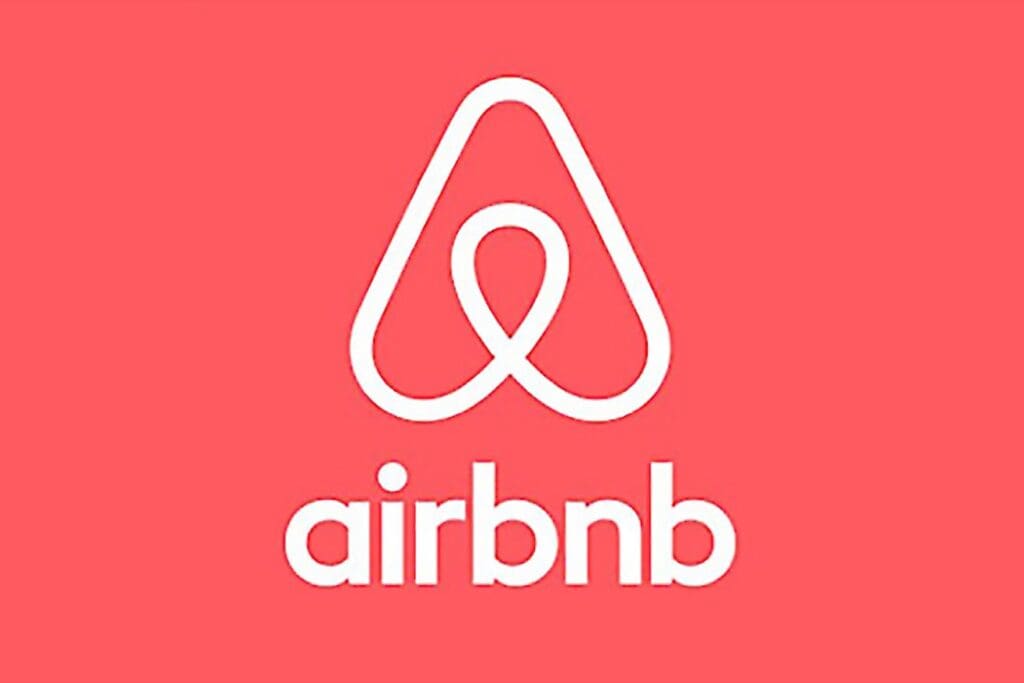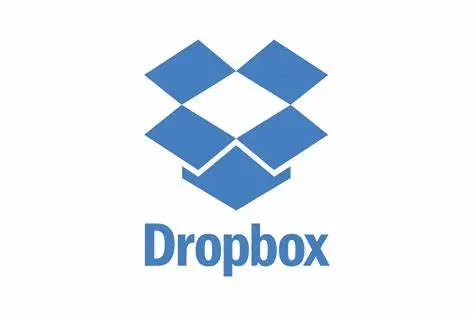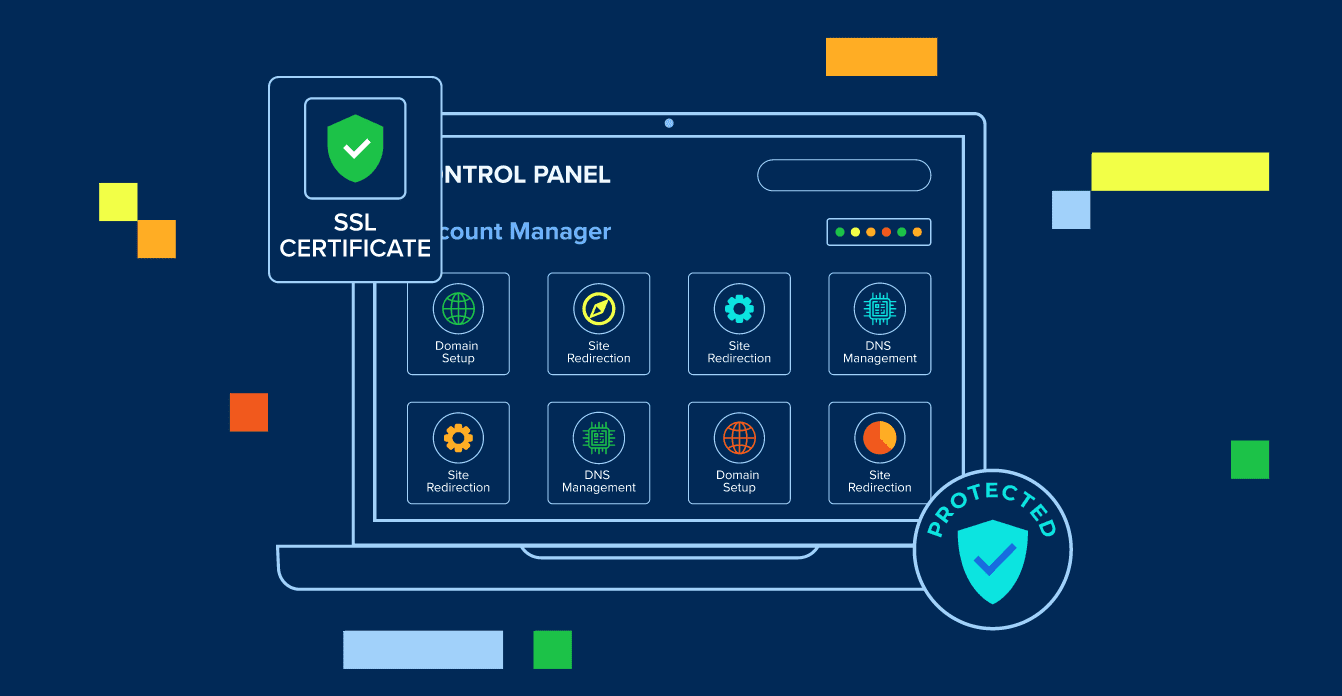Key highlights
- Launch faster with cloud hosting for startups using quick deployments, 1-click app setups and pre-configured stacks.
- Scale your business cost-effectively with startup-friendly cloud platforms that offer pay-as-you-grow pricing and flexible resources.
- Handle traffic spikes seamlessly with the most reliable cloud hosting for startups, featuring auto-scaling and on-demand resources.
- Secure your data with robust cloud infrastructure, including real-time malware protection, automated backups and disaster recovery.
- Leverage AI, machine learning and advanced analytics with cloud hosting for startups to drive growth and innovation.
Are you a startup founder dreaming of digital success in 2026? While the online journey is full of potential, one critical decision can make or break your growth – where and how you host your business online.
This is where cloud hosting for startups becomes essential. More founders than ever are embracing the cloud to unlock scalability, security and high availability. With cloud hosting, your applications and websites run on virtual servers designed for fast performance and low latency.
Unlike traditional hosting, startup-friendly cloud solutions provide access to enterprise-grade infrastructure, global data centers and developer-friendly tools. You can deploy virtual machines, configure managed servers and even integrate AI – all without the complexity of managing hardware.
In this guide, you’ll discover:
- What cloud hosting is and how it powers startups
- Core benefits like uptime, scalability and cost savings
- The best cloud hosting options for startups in 2026
- A 5-step roadmap to scale from MVP to enterprise growth
Ready to accelerate your small business with startup-friendly cloud hosting? Let’s dive in.
TL;DR – Cloud hosting for startups
- Go cloud, not traditional: Shared and VPS hosting can’t match the scalability startups need.
- Launch fast: 1-click deployments and pre-configured stacks cut time-to-market.
- Scale smart: Pay-as-you-grow pricing keeps costs predictable as demand rises.
- Stay secure: Automated backups, firewalls and disaster recovery protect data from day one.
- Pick the right fit: Bluehost, AWS, Google Cloud, HostGator, DigitalOcean, etc.
- Learn from winners: Slack, Airbnb, Dropbox and Notion all scaled globally with cloud-first setups.
- Future-proof now: Serverless, AI integration, edge computing and green hosting are shaping what’s next.
Quick overview – Comparison of cloud hosting for startups
Looking for the best cloud hosting for startups in 2026? Here’s a quick comparison of providers to help you find the right balance of scalability, performance and cost.
| Provider | Scalability options | Support quality | Ease of use | Best for |
|---|---|---|---|---|
| Bluehost | Auto-scaling + managed VPS | 24/7 expert support | Very beginner-friendly | New founders needing startup hosting with a managed cloud setup |
| HostGator | Easy scaling with cloud plans | 24/7 live chat and phone | User-friendly panel | Budget-conscious startups seeking cost-effective hosting services |
| AWS | Limitless cloud infrastructure | Advanced, tiered support | Technical-heavy | Tech teams, SaaS startups or VC-backed businesses needing enterprise scale |
| Microsoft Azure | Enterprise-grade flexibility | Enterprise support plans | Steep learning curve | AI-driven startups and enterprise-grade businesses |
| Google Cloud | Full stack scaling + AI/ML tools | Paid support tiers | Developer-focused | Data-heavy or machine learning-focused startups |
| IBM cloud | Hybrid cloud with ‘bare-metal’ servers and scalable Db2 | Enterprise-level support | High for technical teams | Startups needing hybrid architecture with strong AI/data analytics |
| DigitalOcean | Developer-centric droplets | Developer community support | Requires CLI/console | Dev teams and micro-startups |
| Oracle Cloud | Flexible IaaS and PaaS, always-free tier, startup credits, Kubernetes, fault-domain regions | Personalized support via Oracle | Developer-friendly with initial complexity | Data-heavy, enterprise SaaS or AI startups using Oracle stack |
| Cloudflare | Global edge network, Workers serverless, CDN, DDoS and WAF protection | Community + tiered paid options | Friendly interface and edge developer tools | Startups prioritizing performance, security and fast global delivery |
| Kamatera | Custom server sizing and scaling | 24/7 global support | Highly configurable | Startups with unique infrastructure needs |
| Vultr | Custom VMs across global data centers, fast SSD deployment | Ticket/community support | CLI + UI for developers | Budget-sensitive dev teams needing performance and location flexibility |
| Heroku | Serverless dynos with easy scaling | Tiered support; basic for free tiers | Extremely beginner-friendly | Early-stage SaaS or MVP builders looking for speed and simplicity |
| Rackspace | Managed scaling across AWS, GCP, Azure | 24/7 “Fanatical Support” | Less DIY, more managed | Startups needing expert-managed multi-cloud infrastructure |
| SiteGround | Scalable cloud architecture | Excellent for WordPress users | Simple dashboard | WordPress or WooCommerce startups |
| IONOS | Flexible VM resources | Personal consultant included | Minimalist UI | Budget-first early-stage startups |
This overview highlights the most startup-friendly cloud hosting solutions – we’ll dive deeper into their features and benefits further in the guide.
What is cloud hosting and what does it mean for startups?
Cloud hosting for startups is a type of web hosting that uses multiple servers connected through the cloud to keep your website or application online. Instead of depending on a single physical server, your site draws resources from a distributed network of virtual machines. This ensures high availability, reliability and performance.
For startups, this setup offers the one thing every founder needs most – flexibility.
Let’s break it down:
- Shared hosting places your site on a single server with others. While it’s cost-effective, it struggles with uptime and security, making it risky during traffic spikes.
- Virtual Private Server(VPS) gives you a dedicated portion of a server. It offers better performance than shared hosting but has limited scalability and higher management overhead.
- Cloud hosting taps into a complete cloud infrastructure, providing scalable resources, enterprise-grade security and automated backups. Your site stays fast, secure and startup-ready as demand grows.
Why cloud hosting matters for startups?
With startup-friendly cloud solutions, you can:
- Launch faster with pre-configured servers and automated deployments.
- Handle fluctuating workloads without downtime.
- Scale applications seamlessly as traffic increases.
- Avoid latency issues and performance bottlenecks.
- Secure your data with disaster recovery and compliance-ready protection.
Most importantly, cloud hosting removes the need for costly hardware maintenance. Startups gain access to enterprise-grade infrastructure – without hiring a large IT team.
Read more: Welcome to Bluehost Cloud: Zero Downtime and World-Class Speed
If you’re still wondering whether cloud hosting is right for your business, exploring its benefits for startups is the next step.
7 key benefits of cloud hosting for startups
When you’re building a business from the ground up, every second, every click and every dollar matters. That’s why more founders are turning to cloud hosting for startups – it’s cost-effective, scalable and designed to help you grow fast.
Here’s why cloud hosting is the secret weapon for startups in 2026:
1. Lower costs with pay-as-you-grow pricing
Startup hosting helps you avoid expensive upfront hardware or server investments. With flexible pay-as-you-go pricing models, you only pay for the resources you actually use. As your business scales, costs scale with it – not ahead of it.
Cloud hosting offers:
- Support for fluctuating workloads and unpredictable traffic spikes
- Predictable pricing and startup-friendly billing options
- Free tiers, startup credits or budget-friendly plans from top providers
This cost-effective cloud hosting service structure ensures founders gain productivity and agility without overspending or committing to unnecessary infrastructure.
Also read: Cheap Cloud Hosting: What Are the Affordable Picks?
2. Faster launches and shorter time-to-market
Speed is everything in the startup world. With cloud hosting, you can deploy websites, apps and platforms in just a few clicks – cutting weeks off your launch timeline.
Key features include:
- Automated provisioning that spins up environments in minutes
- 1-click app deployment and CI/CD-ready tools
- Pre-configured stacks optimized for WordPress, WooCommerce or custom frameworks
This makes it possible to get your MVP or product launch live faster, without heavy IT costs or manual server management.
3. Effortless scalability as you grow
One of the best cloud hosting options for startups is seamless scalability. Instead of migrating servers or upgrading hardware, cloud platforms let you scale instantly.
You’ll benefit from:
- On-demand resource allocation for CPU, memory and storage
- Horizontal and vertical scaling for growth or traffic surges
- Load balancing and auto-scaling for consistent uptime and performance
This flexibility ensures your startup stays reliable, optimized and available, no matter how fast demand increases.
4. Remote collaboration made easy
For globally distributed teams, cloud hosting solutions enable real-time collaboration. Startups can build, deploy and manage products from anywhere with:
- Centralized dashboards and shared access to apps and data
- Remote development and monitoring environments
- Integrated version control and permission management
This kind of startup-friendly infrastructure helps teams stay efficient, productive and connected.
5. Built-in security and data protection
Security is non-negotiable for startups. With enterprise-grade cloud hosting, you don’t need a full IT department to stay safe. Most providers include:
- Real-time malware protection and firewalls
- Automated backups with version control
- Role-based access controls and encrypted private networks
These features ensure your startup’s data, customers and applications are secure from day one.
6. Business continuity and disaster recovery
Unexpected downtime can disrupt a young business. Reliable cloud hosting providers minimize risks with:
- Geo-redundant data centers and multi-zone failover
- Disaster recovery protocols with backup restoration
- High availability architectures that maximize uptime
This ensures business continuity, so your startup avoids costly disruptions.
7. Access to cutting-edge innovation
With cloud hosting platforms, startups gain access to enterprise-level innovation at affordable costs. Features include:
- AI, machine learning and data analytics tools
- Cloud-native services for databases, APIs and virtual machines
- Continuous updates and a growing ecosystem of integrations
This allows startup founders to innovate and stay competitive without needing large budgets.
15 best cloud hosting for startups in 2026
The right provider can help your startup launch faster, handle growth seamlessly and stay secure without burning your budget.
To make the decision of choosing a hosting provider easier, let us have an insight on the pros and cons of each brand below:
1. Bluehost
Bluehost delivers enterprise-grade LiteSpeed that has been validated by 99th percentile benchmarks. We guarantee to help you achieve 100% uptime and zero downtime during transfer. Our infrastructure includes SSD storage, global CDN, free SSL and 24/7 support. This makes our solution ideal for early-stage startups needing reliable cloud infrastructure.
- Pros: Beginner-friendly UI, WordPress optimization, rapid deployment
- Cons: Limited advanced dev tools, renewal pricing reflects premium features
Get started with Bluehost cloud hosting to scale your startup.
2. HostGator
HostGator is a go-to for MVPs and smaller startups, offering 99.98% uptime and straightforward migration tools. With auto-scaling cloud packages and 24/7 chat, it supports growing startups without draining the budget.
- Pros: Wallet-friendly, easy to scale, proactive support
- Cons: Dated interface, less ideal for complex infrastructure
3. AWS (Amazon Web Services)
AWS powers everything from side projects to global scaling enterprises. It also offers $1 billion in annual startup credits, including a new $230 million AI credit pool. This allows startups to experiment with AI, analytics and scaling at minimal cost.
- Pros: Limitless scale, global reach, advanced tooling (ML, data analytics)
- Cons: Steep learning curve, complex cost structures
4. Microsoft Azure
Azure meets enterprise-level compliance, AI and hybrid cloud needs. It provides $200 in credits and services like AI and private networking, ideal for startups building on secure, future-proof cloud infrastructure.
- Pros: Enterprise-grade security, disaster recovery, AI integration
- Cons: Complex UI, variable billing
5. Google Cloud
Best for data-driven startups, Google Cloud offers $300 in credits, predictive auto-scaling and integrated stacks like BigQuery for analytics or TensorFlow for machine learning. All this comes built into a modern cloud services environment.
- Pros: Excellent ML/AI pipelines, fast VMs, global edge network
- Cons: Technical setup, intricate cost modeling
6. IBM Cloud
IBM Cloud brings enterprise-level infrastructure with advanced AI and data analytics integration. Its hybrid cloud model is great for startups in regulated industries needing security and compliance.
- Pros: Strong AI and ML integration, excellent compliance tools, hybrid flexibility
- Cons: Complex pricing, steep learning curve for beginners
7. DigitalOcean
Developer-first droplets from $5/month empower startups with lightweight virtual machines, fast networking and excellent documentation. DigitalOCean is ideal for tech-led teams building cloud-native apps.
- Pros: Affordable, predictable, strong developer community
- Cons: No phone support, CLI-heavy management
8. Oracle Cloud
Oracle Cloud is known for its database-first approach, making it ideal for data-intensive startups. It offers high availability and enterprise-grade performance with global infrastructure.
- Pros: Best-in-class database services, strong security, reliable uptime
- Cons: Expensive for small startups, less intuitive UI
9. Cloudflare
Cloudflare isn’t a full cloud host but excels as a performance and security layer. With CDN, DDoS protection and edge computing, it helps startups deliver faster, safer digital experiences.
- Pros: Excellent security, global CDN, cost-efficient plans
- Cons: Limited traditional hosting, advanced tools need add-ons
10. Kamatera
With ultra-customized servers and hourly billing, Kamatera allows startups to fine-tune everything. From CPUs to GPU instances, the solution makes it perfect for custom cloud environments.
- Pros: Granular configuration, global data center choices
- Cons: Requires infrastructure management knowledge
11. Vultr
Vultr offers affordable cloud servers with global data centers and instant deployment. It’s great for technical teams looking for fast, scalable infrastructure without high overheads.
- Pros: Budget-friendly, wide server locations, fast deployment
- Cons: Minimal customer support, less beginner-friendly
12. Heroku
Heroku is a developer-focused platform-as-a-service (PaaS) that simplifies app deployment. Startups can focus on coding while Heroku handles scaling, runtime and server management.
- Pros: Easy app deployment, seamless integrations, developer-friendly
- Cons: Higher costs as you scale, limited infrastructure control
13. Rackspace
Rackspace is a managed cloud services provider, helping startups offload infrastructure management. It’s especially suited for companies that want 24/7 expert support and compliance-focused setups.
- Pros: Fully managed services, strong enterprise support, compliance-ready
- Cons: Pricey for small teams, less flexibility than DIY hosts
14. SiteGround
SiteGround blends speed and security with 99.99% uptime and 0.5s average WordPress page loads. Their AI-powered WAF, CDN and optimized architecture make it a favorite for performance-conscious startups.
- Pros: Superb performance, top-tier security, WordPress-managed
- Cons: Costlier than basic shared plans
15. IONOS
IONOS delivers simple, predictable cloud hosting with personal consultant support and budget-first solutions. It offers the perfect solution for founder-led MVPs.
- Pros: Minimal fuss, consultant support, cost-effective
- Cons: Basic features, older UI
To bring it all into perspective, let’s look at real-world examples of startups that harnessed cloud hosting.
Real startups that scaled successfully with cloud hosting
Seeing is believing and when it comes to cloud hosting for startups, real-world success stories prove how powerful the right infrastructure can be. These companies didn’t just grow; they scaled smarter, faster and more cost-effectively by embracing startup friendly cloud platforms from day one.
1. Slack

Born in San Francisco, Slack started as an internal tool before exploding into one of the world’s most popular workplace messaging platforms. What made rapid scaling possible? Cloud infrastructure.
- Slack leveraged managed cloud services like AWS to support its messaging architecture, ensuring low latency and real-time communication.
- The team easily scaled virtual machines to onboard thousands of organizations, maintaining uptime and smooth deployment processes.
Startup takeaway:
Cloud hosting enabled Slack to scale operations while focusing on customer experience, not server maintenance.
2. Airbnb

What began in a San Francisco apartment grew into a hospitality giant thanks to cloud hosting. Early on, Airbnb adopted cloud services for everything from booking flows to image rendering.
- They used a flexible cloud hosting setup to handle unpredictable traffic and peak travel seasons.
- Tools like data analytics and auto-scaling made it easier to manage a growing network of hosts and guests.
Startup takeaway:
Airbnb’s use of cloud servers helped ensure optimal performance and global reach from the ground up.
3. Dropbox

Dropbox, another San Francisco-born unicorn, primarily relied on the cloud environment to serve millions of users with seamless file syncing and secure storage.
- Initially powered by AWS, they ensured minimal downtime and fast file access across devices.
- The company later went on to customize its own hybrid infrastructure, but cloud hosting powered its early viral growth.
Startup takeaway:
Cloud hosting lets Dropbox innovate fast while offering users reliable, secure data backup options.
4. Notion

Notion, a productivity platform built for teams, utilized Google Cloud platform and other managed cloud solutions to ensure fast rollouts and real-time collaboration.
- With a small team, they achieved rapid product development using cloud infrastructure and auto-scaling capabilities.
- Notion delivered a smooth user experience even during high usage without ever investing in physical hardware.
Startup takeaway:
Leveraging cloud hosting for startups helped Notion punch far above its weight early on.
These examples show one clear pattern: Early adoption of the cloud for new businesses is a strategic move, not just a technical one. Let’s see how you can select the right provider to see similar growth or even more.
How to choose the best cloud for your startup?
The right cloud provider can make or break your startup’s ability to scale efficiently, stay secure and manage costs. With so many options available, evaluating key factors before committing to a platform is crucial.
Here are key factors to consider:
- Cost structure
Startups often work with limited budgets, so pricing flexibility is essential. Look for providers that offer free credits, startup-friendly programs and pay-as-you-go models. Beware of hidden costs like data transfer fees or premium support, which can add up quickly as your user base grows.
- Scalability options
Your cloud platform should be able to grow with you. Features like auto-scaling, global data centers and load balancing ensure your infrastructure can handle traffic spikes and expansion into new regions without downtime or performance issues.
- Security and compliance
If your startup operates in sectors like fintech, healthcare or eCommerce, compliance with standards like SOC, GDPR or HIPAA is non-negotiable. Cloud providers with built-in encryption, DDoS protection and compliance certifications give you peace of mind while protecting customer trust.
- Developer ecosystem and integrations
A strong developer ecosystem can significantly reduce your build time. Check whether the provider supports APIs, SDKs and containers, as well as third-party integrations that align with your stack. This flexibility ensures smoother workflows and faster product development.
- Support and ease of use
For non-technical founders, an intuitive dashboard and responsive support can be game-changing. Look for 24/7 live chat, extensive documentation and easy migration tools so you’re not stuck in the weeds when technical challenges arise.
When evaluating cloud providers, it’s easy to focus solely on free credits or budget-friendly plans. But for startups with serious growth ambitions, the real differentiators are enterprise-grade reliability, security compliance and advanced integrations that prevent costly rebuilds later.
This is where Bluehost stand out – not just as an affordable entry point, but as a platform built with enterprise-level capabilities in mind. With robust infrastructure, global scalability and enterprise-ready integrations, we help startups grow with confidence, not limitations.
Let’s explore how you can kick things off with Bluehost cloud hosting for startups.
Getting started with Bluehost cloud hosting for startups: Buy new or migrate smoothly
Whether you’re launching your very first website or upgrading from an old host, Bluehost’s cloud hosting is designed to fuel startup growth from day one. Follow this simple checklist to get moving quickly and confidently.
- Choose the right cloud plan
Pick a startup-friendly plan based on your site’s size, traffic projections and future scalability needs.
- Register or connect your domain
Secure a free domain along with the hosting plan at Bluehost or connect your existing one for a seamless setup.
- Set up your hosting account
Bluehost’s guided onboarding walks you through creating your cloud environment, emails and essential integrations.
- Clean up your old site (if migrating)
Streamline migration by removing unused files, themes or plugins from your old host.
Read more: Website Migration Checklist – Guide for a Smooth Transition
- Back up your website
Protect your data – files, databases and emails to avoid any risk of data loss during migration.
- Migrate or launch your website
Leverage Bluehost’s free migration tool or expert support to move your site. Starting from scratch? Kick off your MVP with ready-to-use cloud tools.
- Test everything post-setup
Run through speed checks, links, forms and security to ensure your site is visitor-ready from day one.
Maybe you’re starting fresh or switching smart, we offer just the right tools and features to start your cloud hosting roadmap for success.
Your cloud hosting roadmap: From MVP to scale in 5 steps
Here’s how to grow confidently from your first launch to an investor-ready scale with a startup friendly cloud.
Step 1. Launch MVP
Utilize managed cloud server hosting and virtual machines to launch quickly without the hassles of infrastructure setup. Bluehost’s cloud environment gives you the tools to deploy and test your core product easily.
Step 2. Monitor usage
Track visitor behavior, speed and website performance using built-in tools and data analytics. Optimize your setup based on real demand.
Step 3. Scale based on traffic
As usage increases, Bluehost lets you scale resources – CPU, RAM and storage, without migrating again. This lets you handle fluctuating workloads and sudden spikes with confidence.
Step 4. Optimize billing and auto-scale settings
Use Bluehost’s predictable pricing and cost-effective tools to manage spend. Auto-scale resources and get alerts on high usage to stay in control.
Step 5. Prepare for growth and demo day
When it’s time to pitch or go big, your cloud is already ready. Take advantage of cutting-edge technology, robust security measures and minimal downtime that we offer to showcase your product reliably.
As startups look beyond the present, the next wave of innovation in cloud hosting for startups is already reshaping how early-stage companies build, grow and scale. Let’s explore what’s next.
The future of cloud hosting for startups
With emerging technologies, the shift is visible in the hosting industry as well. Here is what the future of cloud hosting looks like:
Rise of AI-powered cloud services
Artificial Intelligence (AI) is accelerating fast. According to Founders Forum Group, the global AI market is valued at $391 billion in 2025, with a projected CAGR of 35.9% through 2030. Embeddable AI into cloud services – from predictive analytics to intelligent autoscaling is becoming a must-have for scale-smart startups.
Serverless architectures for lean startups
Serverless cloud models are reshaping hosting for startups by cutting infrastructure costs. You pay only for what you use, making it one of the most cost-effective cloud hosting services for startups today.
Edge computing for faster global experiences
Startups aiming for global reach need speed. Edge-based cloud hosting brings servers closer to users, delivering reliable, low-latency performance – a hallmark of the most reliable cloud hosting for startups.
Multi-cloud strategies to reduce risk
Relying on one provider is risky. The best cloud hosting for startups now means blending multiple providers to stay flexible, reduce downtime and scale without limitations.
Sustainability and green adoption
Green cloud hosting isn’t just a trend – it’s becoming a standard. For startups that value both performance and responsibility, Bluehost cloud hosting helps balance innovation with sustainability.
Final thoughts
Cloud hosting for startups is not limited to a technical decision for creating a digital presence. It goes beyond that. The right hosting is more of a strategic move that impacts the overall growth of your business in the future as well.
With Bluehost’s flexible cloud hosting solution, you get more than infrastructure. From virtual machines and automated backups to disaster recovery and 24/7 support, we make scaling simple, secure and cost-effective.
If you are starting your startup journey, Bluehost is your first step toward success. Contact us today for more details.
FAQs
Cloud startup hosting refers to hosting services built on virtualized cloud infrastructure designed to help new businesses launch and scale their websites or applications efficiently.
It allows startups to access on-demand cloud computing resources, such as cloud servers, storage and data analytics tools, without investing in physical hardware. This model is scalable, cost-effective and ideal for fluctuating workloads, making it a startup-friendly cloud solution.
Yes – cloud hosting offers superior scalability and uptime. By distributing workloads across multiple servers, it provides better reliability, automatic failover and the pay-as-you-go flexibility startups need. In contrast, VPS hosting and shared hosting rely on fixed resources and may struggle with traffic surges.
Cloud hosting gives startups agility and resilience. It offers robust features like virtual machines, high uptime via a network of multiple data centers and automatic scaling. It also comes with managed cloud infrastructure and disaster recovery – all without hefty upfront costs.
Managing cloud costs can be tricky: Many IT leaders reported budget overruns and cloud expenses often exceed expectations. Challenges include cost control, security gaps such as misconfigurations and lack of in-house cloud expertise.
When choosing a cloud hosting provider, startups should evaluate:
– Scalability options: Can it grow with your business?
– Support quality: 24/7 help, onboarding and documentation
– Ease of use: Beginner-friendly UI or developer-ready tools
– Security measures: Built-in backups, malware protection, private networks
– Pricing model: Predictable pricing and cost-effectiveness
The best cloud service for startups depends on your technical needs and budget. Here’s a quick overview:
– Bluehost: Best for managed cloud, ease of use and scalability for higher vision
– Google Cloud: Ideal for startups using AI and data analytics
– AWS: Suitable for high-growth, developer-heavy SaaS startups
– Hostinger: A great budget-friendly option with a clean UX
Startups should look for flexible cloud hosting, predictable pricing and strong support options tailored to growth stages.
Bluehost cloud hosting typically starts around $75.00/month for cloud hosting solutions, offering auto-scaling, enhanced performance and 24/7 expert support. Pricing may vary based on resources, duration and any introductory offers, so it’s best to check their official site for real-time updates and deals.
Yes. Cloud hosting offers better scalability, uptime and performance. Unlike shared or VPS hosting, it uses multiple virtual servers to balance load and prevent downtime. This makes it ideal for startups and growing businesses.
Startups, SaaS platforms, ecommerce businesses and remote teams benefit the most. It supports fluctuating workloads, offers cost-effective scalability and ensures minimal downtime.
Cloud hosting runs your website across a network of virtual machines instead of one server. This setup ensures high availability, auto-scaling and better website performance, especially during traffic spikes.



Write A Comment